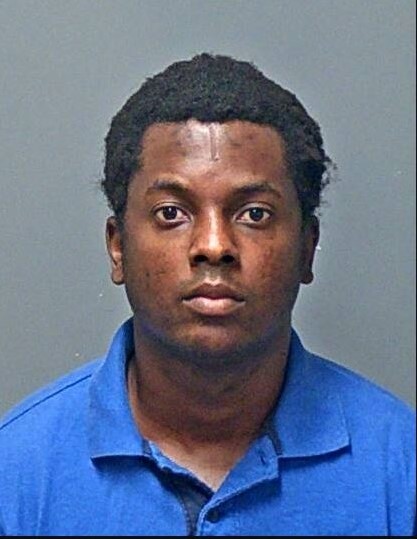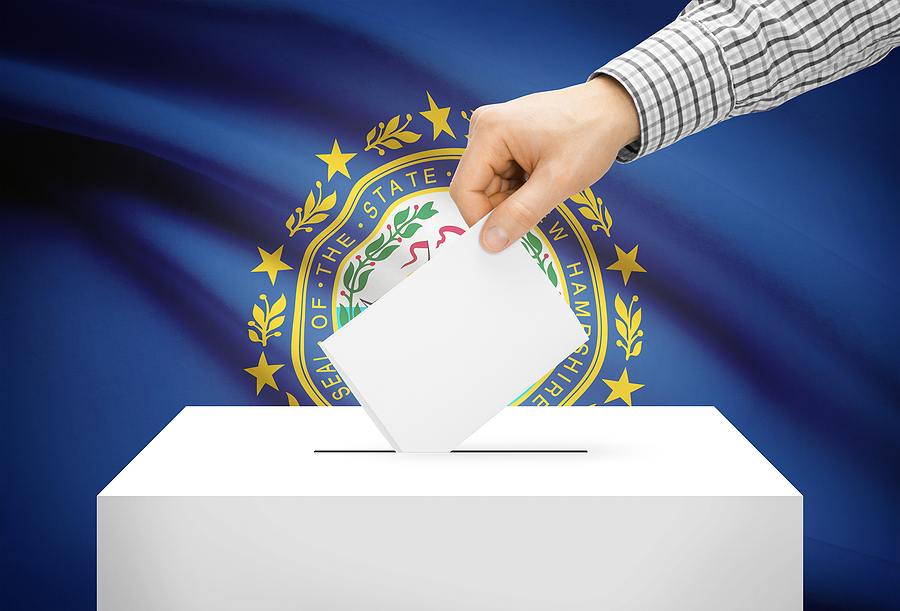Lax NH Voter Law Allowed Non-Citizen to Vote Three Times, Records Show

When news broke that a Jamaican citizen had been arrested for illegally voting in New Hampshire — in three different elections — the first question many Granite Staters had was “How is that possible?”
And the answer, say voting law experts, is that New Hampshire’s law at the time made it possible. But not anymore.
Naseef Bryan, 34, was arrested and charged this week on three felony counts of wrongful voting. At the time he started voting in Manchester, Bryan was engaged in multiple lawsuits with the federal government in an attempt to force his way into becoming a citizen.
The lawsuits indicate that Bryan knew he was not a citizen when he registered to vote in the November 2023 municipal election and could therefore not legally vote. But if he knew he wasn’t a citizen, why didn’t the New Hampshire election authorities know it, too?
According to a representative for the city clerk’s office, Manchester election officials followed the law when Bryan registered. He was asked to prove his identity, his current address or domicile, and his status as a U.S. citizen.
For the first two, Bryan presented a New Hampshire driver’s license as photo ID and his car registration to prove he lived in the city. As for his citizenship, New Hampshire law allowed voters to sign an affidavit in front of a poll worker attesting that he or she is an American citizen.
Unless the affidavit is challenged, the citizenship claim is neither questioned nor confirmed, and the vote is counted. Or at least it was.
Bryan could not register to vote today, thanks to the law signed by Gov. Chris Sununu last year. HB1569 requires people registering to vote for the first time to prove their citizenship status. Democrats and liberal groups attacked the law, calling it “unconstitutional” and “a clear attack on one of our most fundamental rights.”
Democrats in the state House and Senate overwhelmingly voted against the proof-of-citizenship requirement.
“Make no mistake: this law will disenfranchise eligible voters with no evidence or data to back up any reason as to why,” Devon Chaffee, executive director of the ACLU-NH, said at the time.
Then came the Bryan case.
“For years, Democrats told us that a signature on a piece of paper was all that was needed for proof of citizenship for voting, and for years, we told them the system was wide open for abuse,” said Rep. Ross Berry (R-Weare), chair of the House Election Law Committee. “Turns out we were right, and thankfully, we have already closed that loophole over their objections.”
The new Granite State requirements are similar to those in the federal SAVE Act, a law Democrats like U.S. Rep. Maggie Goodlander claimed — falsely — would disenfranchise married women.
“These women would not be able to use their birth certificates to prove their citizenship under the SAVE Act. And, if they do not have a passport, which roughly 44.5 percent of Granite Staters do not, they would not be able to register to vote at all under the SAVE Act,” Goodlander said in a statement.
However, the New Hampshire law only affects new voter registrations, and married women who are already registered to vote won’t be turned away from the polls if they have taken their husband’s last name.
Affidavit ballots have also been used for same-day registration when would-be voters show up without either proof of identity, address, or both. Under the old rules, they could fill out an affidavit and cast their vote. They then had one week to provide proof of identity, thus allowing their vote to be added to the total count.
In 2024, 27 voters who registered at the polls without an identification earlier this month were provided with affidavit ballots, the largest number ever in a single election. Of those 27, only three sent in their proof of identity, according to the New Hampshire Secretary of State’s Office.
It’s not yet clear from the available records how Bryan was caught. Speculation surrounds the fact that he’s a litigious and outspoken gadfly in the New Hampshire legal system, seeking the sort of attention that could catch the eye of election law enforcement.
It would only take a quick internet search to find his many lawsuits against various government agencies, including his legal battles with the United States Citizenship and Immigration Services.





